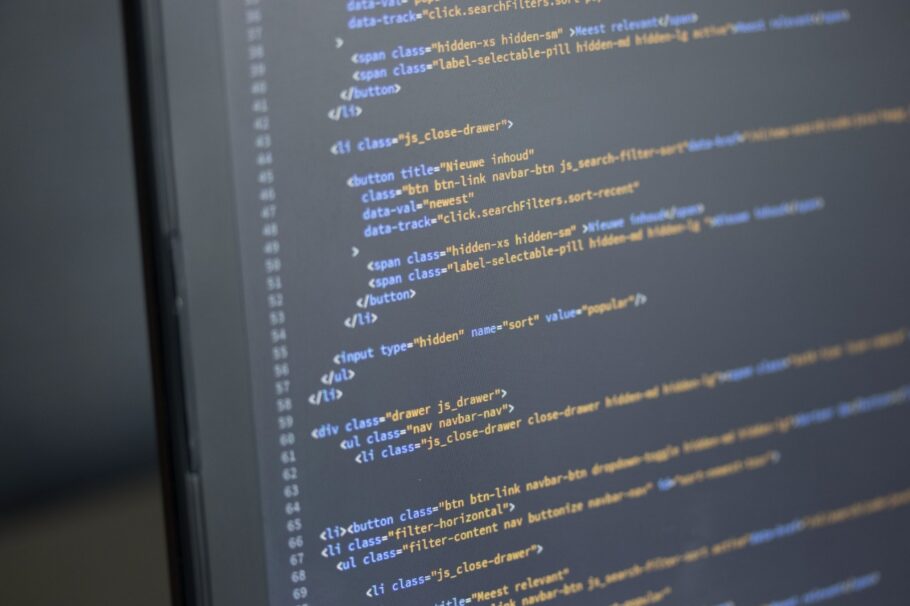- What does SQA Leader do
- Career and scope of SQA Leader
- Career Path for SQA Leader
- Key Skills of SQA Leader
- Top 20 Roles and Responsibilities of SQA Leader
- Cover Letter for SQA Leader
- Top 20 interview questions and answers for SQA Leader
What does SQA Leader do?
The SQA Leader is responsible for leading and managing the software quality assurance team. They are responsible for ensuring that the team meets all quality assurance objectives and goals. They also work closely with other departments to ensure that the software meets all customer requirements.
Career and scope of SQA Leader
The career and scope of an SQA Leader is very broad. They may work in a variety of industries, including software development, information technology, and telecommunications. They may also work in a variety of roles, including quality assurance manager, software development manager, and software quality engineer.
Career Path for SQA Leader
The career path for an SQA Leader is very flexible. They may choose to specialize in a specific area of software quality assurance, such as test management or software development process improvement. They may also choose to move into management roles, such as project manager or program manager.
Key Skills of SQA Leader
The key skills of an SQA Leader include strong leadership skills, excellent communication skills, and extensive knowledge of software quality assurance principles and practices. They should also be able to work effectively in a team environment and be able to handle multiple projects simultaneously.
Top 20 Roles and Responsibilities of SQA Leader
The top 20 roles and responsibilities of an SQA Leader include:
1. Leading and managing the software quality assurance team.
2. Ensuring that the team meets all quality assurance objectives and goals.
3. Working closely with other departments to ensure that the software meets all customer requirements.
4. Creating and implementing quality assurance plans.
5. Developing and maintaining quality assurance standards.
6. Conducting quality assurance audits.
7. Identifying and tracking software defects.
8. Investigating and resolving software problems.
9. Providing feedback to software developers on quality issues.
10. Generating reports on quality assurance activities.
11. Reviewing and approving software changes.
12. Participating in software development projects from start to finish.
13. Coordinating with other team members to ensure smooth project execution.
14. Monitoring trends in software quality assurance.
15. researching new software quality assurance methods and technologies.
16. Training new team members on quality assurance procedures.
17. Maintaining up-to-date knowledge of industry trends.
18. Attending conferences and seminars on quality assurance.
19. Writing articles and whitepapers on quality assurance topics.
20. Staying abreast of new software development technologies and trends.
Cover Letter for SQA Leader
To Whom It May Concern,
I am writing to apply for the position of SQA Leader with your company.
I am a highly experienced software quality assurance professional with over 10 years of experience in the industry. I have a strong track record of leading successful software quality assurance teams and projects. I have a deep knowledge of quality assurance methodologies and tools, and I am skilled in managing all aspects of the software quality assurance process.
I am a highly motivated and detail-oriented individual with excellent communication and problem-solving skills. I am confident that I can provide your company with the leadership and expertise needed to ensure the success of your software quality assurance efforts.
Thank you for your time and consideration.
Sincerely,
[Your Name]
Top 20 interview questions and answers for SQA Leader
1.What is the role of a SQA leader?
A SQA leader is responsible for planning, executing, and monitoring software quality assurance activities throughout the software development life cycle. This includes developing and maintaining quality standards, conducting quality audits, and managing a team of quality assurance specialists.
2.What are the most important responsibilities of a SQA leader?
The most important responsibilities of a SQA leader are to ensure that software meets quality standards and to identify and resolve quality issues throughout the software development life cycle.
3.What skills are necessary to be a successful SQA leader?
To be a successful SQA leader, you must have strong analytical and problem-solving skills. You must also be able to effectively communicate with software developers and other stakeholders. In addition, you must be able to work independently and as part of a team.
4.What are the biggest challenges you face in your role as a SQA leader?
The biggest challenges you face in your role as a SQA leader are staying up-to-date with new software development technologies and trends, and keeping up with the ever-changing software quality assurance landscape.
5.What is your experience with managing a team of quality assurance specialists?
I have extensive experience managing a team of quality assurance specialists. I have a proven track record of leading my team to success by setting clear goals and expectations, and providing the necessary resources and support.
6.How do you go about setting quality standards for software development projects?
I typically start by reviewing the customer’s requirements and then determining what the most important quality characteristics are for the project. From there, I develop a set of quality standards that must be met in order for the project to be successful.
7.What methods do you use to conduct quality audits?
I typically use a combination of manual and automated testing techniques to conduct quality audits. I will also review project documentation and process flows to identify potential areas of improvement.
8.How do you handle it when you find a serious quality issue?
When I find a serious quality issue, I immediately escalate it to the project manager or software development team lead. I then work with them to determine the root cause of the issue and put together a plan to resolve it.
9.What are your thoughts on using automated testing tools?
I believe that automated testing tools can be extremely helpful in ensuring software quality, but they should not be used as a replacement for manual testing. Automated testing should be used to supplement manual testing, not replace it.
10.How do you ensure that quality assurance activities are properly integrated into the software development process?
I work closely with the project manager and software development team lead to ensure that quality assurance activities are properly integrated into the software development process. I also make sure that my team is aware of all upcoming project milestones and deliverables.
11.What do you think is the most important aspect of software quality assurance?
I believe that the most important aspect of software quality assurance is preventative measures. It is important to put quality assurance measures in place early on in the software development process to prevent quality issues from occurring later on.
12.What role does communication play in software quality assurance?
Communication is critical in software quality assurance. I work closely with the project manager and software development team lead to ensure that everyone is on the same page with regards to quality assurance activities. I also make sure to keep my team informed of any changes or updates to the project.
13.What are your thoughts on using offshore resources for quality assurance?
I believe that offshore resources can be a valuable asset for quality assurance. However, I believe that it is important to have a solid understanding of the culture and communication styles of the offshore team before outsourcing any quality assurance activities.
14.How do you deal with conflict within the quality assurance team?
I believe that conflict is inevitable in any team environment. When conflict does arise, I try to encourage open and honest communication between all parties involved. I also believe that it is important to respect each team member’s opinion and perspective.
15.How do you manage changing priorities within the quality assurance team?
I believe that it is important to be flexible and adaptable when priorities change. I work closely with the project manager and software development team lead to ensure that everyone is aware of the changes and that the quality assurance team is still able to meet its objectives.
16.What do you think is the most important quality assurance metric?
I believe that the most important quality assurance metric is customer satisfaction. I track customer satisfaction throughout the software development process and use it as a gauge for the success of the project.
17.How do you ensure that quality assurance activities are aligned with business objectives?
I work closely with the project manager and software development team lead to ensure that quality assurance activities are aligned with business objectives. I also make sure to keep my team informed of any changes or updates to the project.
18.What is your experience with international software development projects?
I have extensive experience working on international software development projects. I have a solid understanding of cultural differences and communication styles. I also have a proven track record of successfully managing quality assurance activities on these types of projects.
19.What do you think is the biggest challenge with managing remote teams?
I believe that the biggest challenge with managing remote teams is communication. It is important to have a solid understanding of the culture and communication styles of the team before outsourcing any quality assurance activities.
20.What advice would you give to someone new to the role of SQA leader?
My advice to someone new to the role of SQA leader would be to get a solid understanding of the software development process and the different quality assurance activities that are involved. It is also important to be able to effectively communicate with software developers and other stakeholders.





